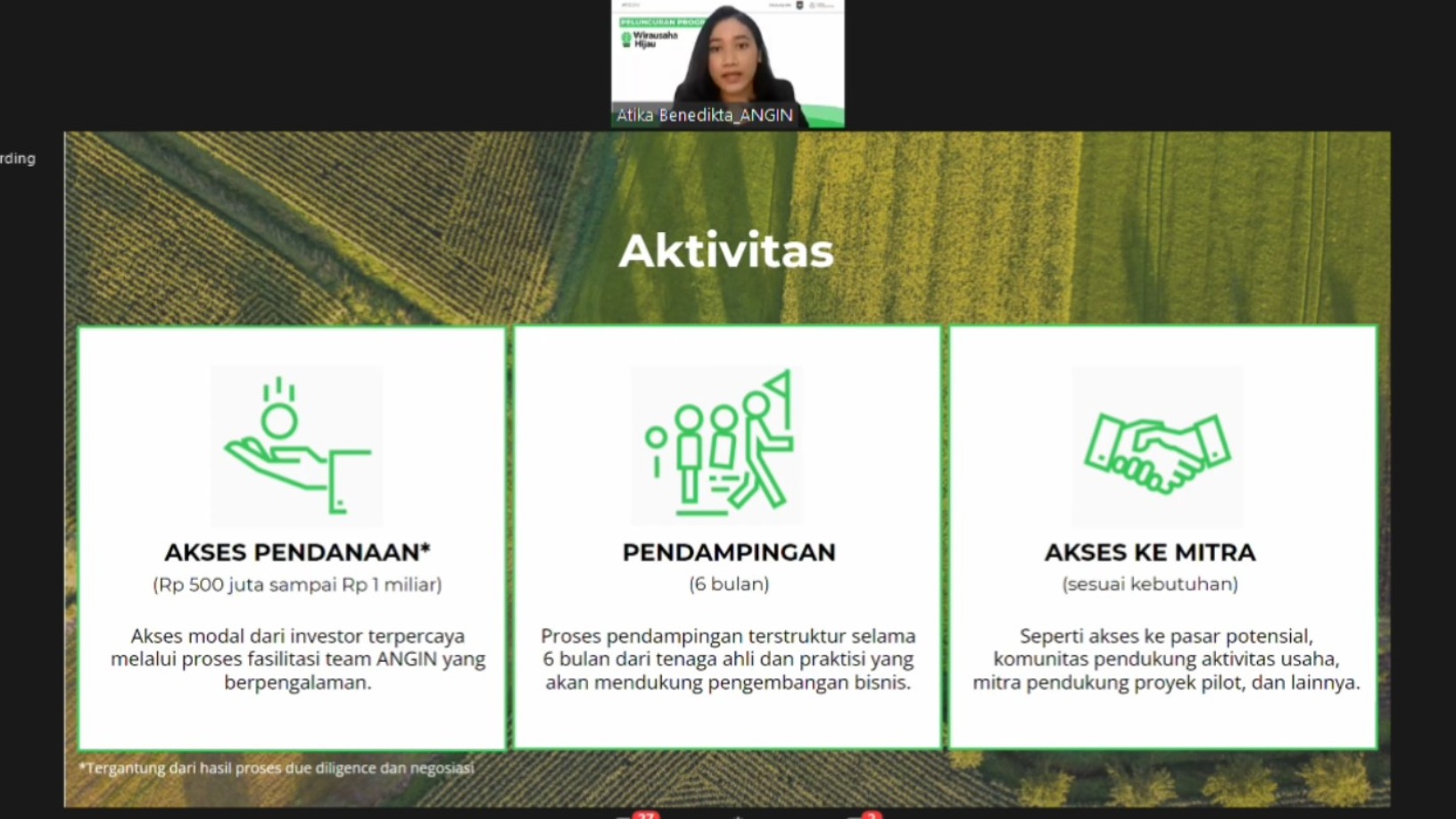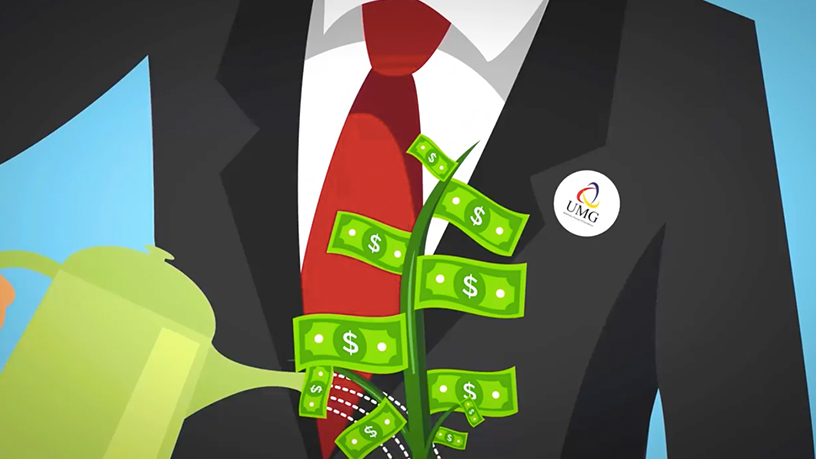Angel Investor Network Indonesia (ANGIN) today launched an incubator program for SMEs and startups working in the agriculture and food chain. Dubbed Wirausaha Hijau ("green entrepreneurship"), the program is supported by the Indonesian Ministry of Home Affairs and the Ford Foundation.
Six businesses will be selected to receive close support and mentoring in the six-month pilot starting January 2022. Eligible participants stand to receive funding of up to IDR 1bn each and will also be connected to potential partners through the program. Applications are open until October 31 this year.
Atika Benedikta, Impact Investment Lead at ANGIN, said in a virtual media event that the program was born out of the firm’s research on impact investing conducted in 2020: “We found that access to impact investments was severely limited for early-stage startups in Indonesia, especially those in the agriculture and food supply chain verticals.”
The program will focus on local startups and SMEs, connecting them with local investors and providing each participating company mentoring tailored to their needs. The program will also push for environmental and social impact, encouraging businesses to achieve a business model that is both economically and environmentally sustainable.
Benedikta gave six examples of business models that the ANGIN team is looking to bring into the program: tech-based process optimization, market access, human capital development, biotechnology, financial services and alternative materials.
Startups applying to Wirausaha Hijau must be located in Indonesia, and have at least one Indonesian in the founding team and an MVP or prototype. The startup should be open to fundraising from investors within three to nine months of finishing the program, and it must commit to championing gender equality and female empowerment within the industry.
“The startups must also show a growth-oriented business model. The program is currently not open to nonprofits,” Benedikta added.
Changing investment landscape
Alexander Irwan, Indonesia Director of Ford Foundation, said at the launch that the Wirausaha Hijau program is in line with the philanthropic organization’s commitment to impact investing, especially in activities related to natural resource management and tackling climate change. He added that, previously, the endowment fund behind the foundation’s efforts was not managed in line with environmental, social and governance (ESG) metrics.
“At the time, the managers only focused on investing money in whatever instruments that generated the best returns,” Irwan said. “Now, the Ford Foundation is piloting a program where we invest $1bn in impact-focused businesses.”
Most of the funds are invested in US entities, he explained, but others are also invested through global PE firms, some of which have already been channeled toward Indonesian businesses.
The agriculture industry performed well during the Covid-19 pandemic in Indonesia, being one of the few sectors that maintained positive growth throughout 2020. M Pradana Indraputra, expert at the Indonesian Investment Coordinating Board (BKPM), said the sector has consistently attracted trillions of rupiah in realized investments since 2016.
“The agriculture sector has been in the top five sectors attracting investments in Indonesia. It’s a big market with real, proven potential,” he said in a panel discussion held during the launch.
Sri Purwaningsih, Secretary of the Directorate General of Rural Development at the Ministry of Home Affairs, welcomed the launch of the program as a means to support local SMEs in the agriculture and food verticals.
“Entrepreneurship is very important to our country, especially during the [Covid-19] pandemic, with more than 64m micro- and small businesses affected by the situation. This sector of the economy requires great attention from various stakeholders,” she said.
“We hope that ANGIN, the Ford Foundation, and government agencies can support people and their businesses by successfully conducting the Wirausaha Hijau program,” she added.











